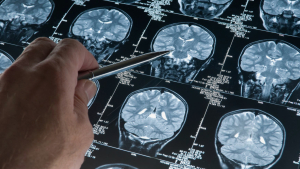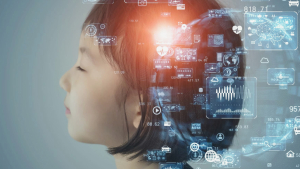Are our memories of the right place? Or does the past look different in retrospect? Alberto Prati from University College London and Claudia Senik from the Sorbonne Université in Paris were looking for answers to these questions in longitudinal studies from the USA, France, Great Britain and Germany. In the data they discovered systematic memory distortions: "People can remember how they felt, but the memory mixes with how they feel today," report Prati and Senik in the journal "Psychological Science".
The two economists first evaluated data from 11,000 adults who had participated in the Socio-Economic Panel in the years 2006 to 2016, a regular data collection in Germany, in which, among other things, the current life satisfaction is asked. In the most recent survey, you should choose one of nine lines that you think best reflected how your life satisfaction had developed over the past ten years.
The happiness today chose a steadily rising line, the moderately lucky a slightly rising and the less happy a descending line. The lucky overestimated the growth of well -being and believed that they had been more unhappy earlier than was actually the case. The less lucky ones, on the other hand, thought they were once more happier and overestimated the downward trend.
A similar trend was shown in Gallup surveys of the years 1971, 1976, 2001 and 2006 in the USA: the past happiness was underestimated. On average, the approximately 4,000 respondents believed that they had been less happy five years earlier than they had stated at the time. And the same was confirmed by a study in France of around 18,000 respondents in a one-year review.
Such memories of memory also appeared in the data of more than 20,000 British. When asked whether they felt more, less or as satisfied as a year ago, about half of them remembered correctly. But with the rest, the memory of the current condition was colored.
Happiness means that it goes up
"Something messed up: to feel good and feel better," explain Prati and Senik. They conclude that feelings of happiness are usually connected to the fact that you feel better than in the past. And misfortune contains that it must have gone down.
In 2020, they had already expressed two further theories in a sub-study. One: because we are not sure what it really was like, we unconsciously tend towards a presumed normal value. According to the other theory, we want to maintain the most positive self-image possible. To this end, we create a "self-serving illusion", and this manifests itself differently depending on the current state of affairs: for happy people in a positive trend towards an even better future, for unhappy people in the whitewashing of the past, so as not to have to attest to a permanent failure.



















